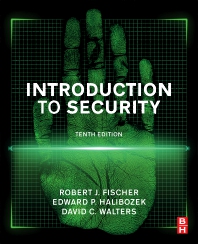Averting Targeted School Violence: A U.S. Secret Service Analysis of Plots Against Schools focuses on prevented violence

<a href='https://www.freepik.com/photos/background'>Background photo created by tirachard - www.freepik.com</a>
The U.S. Secret Service National Threat Assessment Center (NTAC) released Averting Targeted School Violence: A U.S. Secret Service Analysis of Plots Against Schools, the newest report out of the center. For the first time in agency history, NTAC specifically examines attacks that were successfully prevented.
Averting Targeted School Violence: A U.S. Secret Service Analysis of Plots Against Schools examines 67 plots to conduct a school attack that were averted in the United States from 2006 to 2018. The report was released in conjunction with a virtual presentation to more than 13,000 registered education stakeholders representing all 50 states and 64 countries.
U.S. Secret Service Director James Murray welcomed participants, and noted specifically to participants the role that everyone has to play in preventing the next tragedy.
“The takeaway from this report, and the 67 cases you are about to examine, is that when people come forward to report concerning behaviors, they can and do save lives,” said Director Murray. “That’s the bottom line, here. Bystanders save lives, and the Secret Service stands ready to support you and your communities in helping to reduce targeted violence in the years to come.”
Secretary of Homeland Security Alejandro Mayorkas also addressed participants during the event.
“Ensuring the safety of children while they are at school is our utmost responsibility,” said Secretary of Homeland Security Alejandro Mayorkas. “It requires us working together through our law enforcement and community partnerships. Many of the tragedies that have occurred in schools could have been prevented, that is why it is so important to establish targeted violence prevention programs, including those that the Secret Service recommends.”
The report identified numerous qualitative key findings and commonalities across the 67 incidents:
- Targeted school violence is preventable, if communities can identify warning signs and intervene.
- Schools should seek to intervene with students before their behavior warrants legal consequences.
- Students were most often motivated to plan a school attack because of a grievance with classmates.
- Students are best positioned to identify and report concerning behaviors displayed by their classmates.
- The role of parents and families in recognizing concerning behavior is critical to prevention.
- School resource officers (SROs) play an important role in school violence prevention.
- Removing a student from school does not eliminate the risk they might pose to themselves or others.
- Students displaying an interest in violent or hate-filled topics should elicit immediate assessment and intervention.
- Many school attack plots were associated with certain dates, particularly in the month of April.
- Many of the student plotters had access to weapons, including unimpeded access to firearms.
“The National Threat Assessment Center has been studying targeted violence for over 20 years to help our public safety partners stop violence in their communities,” said National Threat Assessment Chief Dr. Lina Alathari. “The research and guidance we publish is focused on prevention, with a particular focus on preventing targeted school violence, and the report released today builds even further on the work we do every day to best position community and school leaders to effectively intervene before the next potential tragedy.”
Since the 1990’s, the Secret Service NTAC has been conducting research, training, consultation, and information sharing on threat assessment and the prevention of targeted violence. NTAC has studied attacks directed at government agencies and officials, workplaces, schools, colleges, universities, and other public spaces. This systematic approach identifies individuals who may be exhibiting threatening or concerning behavior and assessing the risk posed by the individual. The academic research-based approach to studying the behaviors associated with acts of violence supports the Secret Service's protective mission and our nation's effort to better protect our communities.
To learn more about the U.S. Secret Service and NTAC, click here.
Looking for a reprint of this article?
From high-res PDFs to custom plaques, order your copy today!






